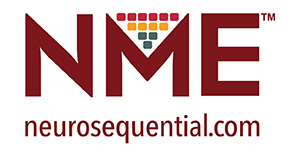Graduate Credential in Neurosequential Model in Education
School of Education & Human Development
Overview
Degree: Graduate Credential
Classroom Type: Fully Online
Provides trauma-informed knowledge and hands-on tools and strategies for educators, directors, principals, mental health professionals, early interventionists, and special education staff to use with PreK-12 students who present with a variety of challenging behaviors in educational and treatment settings. This credential is available only to graduate degree seeking students at CU, as well as graduate alumni.
Program Details
Interest Categories: Education & Counseling
Campus: CU Denver Online
"Trauma-informed" practices have become a trend in education and clinical settings. In general, trauma informed practices include examining the influence and impact of factors such as child maltreatment, racism, poverty, peer victimization, community violence, and bullying on youth. There are many models of trauma informed education but very few are research-based. The Neurosequential Model in Education™ (NME) credential is unique in that it is informed by what is known about neurobiology and the impact of trauma on the brain and in its applicability.
Drawing on core concepts from many disciplines including the neurosciences, anthropology, developmental psychology and sociology, the Neurosequential Model™ is an evidence-based framework that brings a neurodevelopmental and trauma-informed approach to educational and clinical settings. The NME is not a specific “program” or “intervention.” It includes a “capacity-building” process that provides an introduction to important concepts related to how we learn by focusing on how the brain works, develops, changes, and is impacted by developmental adversity including trauma. This is what makes this program unique.
The goals of the Credential are to educate teachers, mental health professionals, and other school personnel in basic concepts of neurosequential development and then teach them how to apply this knowledge to the teaching and learning process. This Credential Program uses everyday behavioral challenges to introduce emerging concepts related to brain functioning, brain development and traumatology in everyday educational settings.
The University of Colorado Denver’s Neurosequential Model in Education™ (NME) credential will equip school personnel with research-based and neurodevelopmentally- and trauma-informed knowledge and strategies to foster a positive school climate, meet children's developmental needs, and enhance student learning, safety, and well-being. Such an approach can also be used as an alternative to exclusionary disciplinary practices.
This is one of only two university credentials in the U.S. that offers both graduate credit as well as a certificate in NME issued through the Neurosequential Network.
Expand your knowledge-base in the area of trauma-informed education. Learn to use a neurodevelopmentally-informed, biologically respectful perspective on human development and functioning to understand and better support PreK-12 student behavior and performance.
Credential Structure
Complete the NME credential conveniently via Zoom video-conferencing
This remote graduate credential certificate program allows for great flexibility as students can complete the required coursework from anywhere. Each course meets synchronously via Zoom. The two courses must be taken in sequence and students are encouraged to commit to both courses and completion of the credential. Learning to engage in NME practices, is enhanced when learning with a consistent group of other students who are also committed to the full credential.
Known for excellence
Many educational leaders and coaches have received their advanced degrees from CU Denver. We have a name that is recognized for preparing leaders who are passionate about diversity, inclusion and social justice. Additionally, CU Denver’s School of Education & Human Development is a top school according to U.S. News & World Report.
Expert faculty
Our faculty are directly connected to the educational community, as well as the Neurosequential Network. With such connections, they are well-versed in trauma-informed education and care. Their guidance will prepare you to further your career while promoting social justice and inclusion in educational settings.
About the School of Education & Human Development
The School of Education & Human Development (SEHD) at the University of Colorado Denver attracts students who are passionate about careers in education and mental health. We match their passion with an education that is rooted in diversity, technology, proven approaches and real-world practice. That’s why our graduates are prepared to make immediate and life-long impacts on people, communities and the world. Our graduates are recognized to be among the most prepared in the nation to support diverse languages, cultures, and abilities in the classroom.
This is a 6-hour program consisting of the following courses:
Introduction to the Neurosequential Model in Education- SPSY 5100
Introduction to the core concepts of the Neurosequential ModelTM (NM) that impact learning. Core concepts include basics of brain organization, brain development, understanding state-dependent learning, the stress response systems, and the impact of trauma and neglect on children.
Application of Neurosequential Model in Education- SPSY 5200
Focuses on helping school psychologist and other school personnel better understand and support challenging children by offering practical strategies and classroom practices related to structuring classroom schedules, activities and interactions that can help all children (not just children impacted by trauma and adversity) learn in an optimal way.
Click here for more information: https://application.admissions.ucdenver.edu/register/Neuro
Courses
- SPSY 5100 - Introduction to the Neurosequential Model in Education 3 credits
- SPSY 5200 - Application of Neurosequential Model in Education 3 credits
Recommended Completion Time:9 months
Required Credits for Completion:6
Admission Requirements
This credential is available only to graduate alumni or students currently enrolled in a graduate degree program. If you are interested in earning the credential reach out to your advisor.
